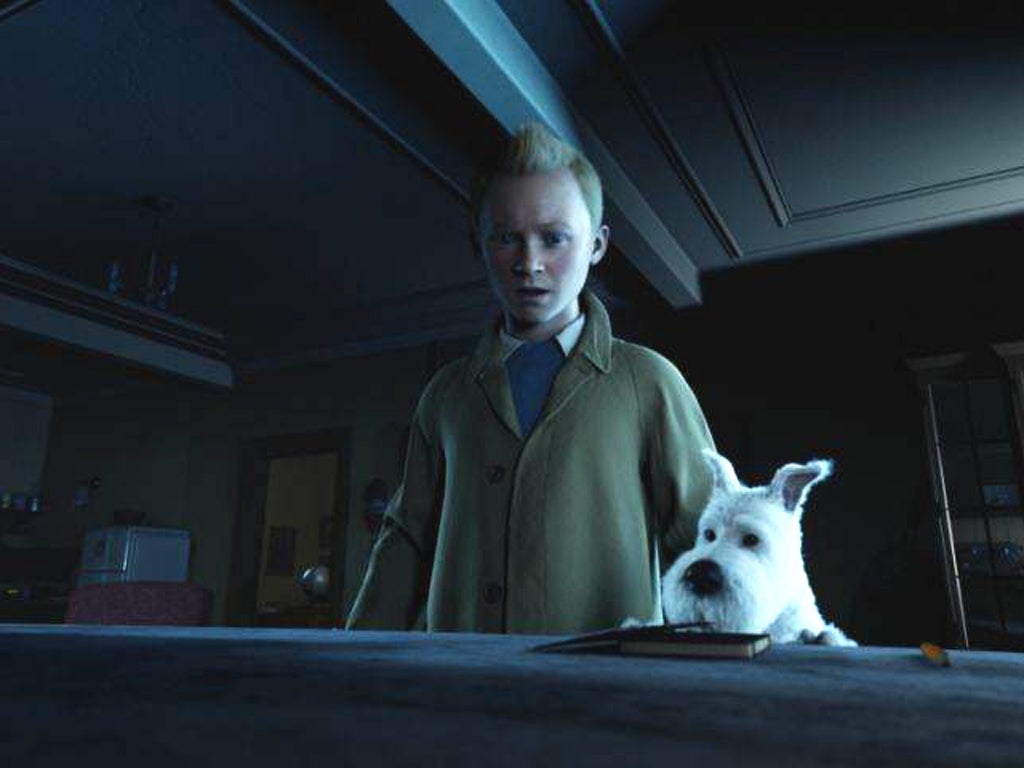Robert Fisk: The adventures of Tintin in Beirut

We are all haunted by war.
The First and Second World Wars continue to hold us in their sticky embrace. The Lebanese are still trying to shake off the Christian-Druze massacres of 1860, let alone the 1975-1990 civil war. And there's a fascinating view that the events which lead to war somehow enter our bloodstream, become part of us, a history that goes round and round inside our bodies for ever. Most Lebanese regard the start-line of their civil war as the Christian Maronite Phalangist attack on a bus-load of Palestinians in the Beirut suburb of Ain el-Remmaneh, a red and cream American school bus – actually made at Kew in England – that now lies rusting in a field in southern Lebanon, registration plate long torn off but bullet holes intact and ghosts still aboard.
In an article headlined "Ghost Generation", the Lebanese writer Fifi Abou Dib has intriguingly recreated the last seconds of peace in Lebanon, the driver of the red and cream bus drawing on his cigarette – we don't know if, indeed, he smoked – annoyed at the traffic jam in which he found himself. "The tragedy of the bus at Ain el-Remmaneh is written in our collective history, for sure. But more than anything else, it has infected our DNA." It's true. Art galleries in Beirut often carry symbols of the bus, red and cream, a 1960s Fargo, mass grave to 27 men and women.
Yet only this last October did the Lebanese hold their first seminar on the events of the Christian-Druze war which broke out in the Metn and Chouf mountains 115 years before the bus massacre at Ain el-Remmaneh. And it was Dima de Clerck, doctoral graduate of the University of Paris 1, who drew attention to the connections between 1860 and 1975. "We are in the presence of two traumatic histories which feed on each other," she said. "...The recent war, which happened out of the blue but for clear socio-political reasons, resurrected the memory of 1860, brought it back to life... the history of that conflict, so badly neglected at the time, provoked Christians and Druze to take up arms in 1975, one side taking revenge for a past regarded as shameful, the other (wanting) to gain the political victory which their military success did not obtain for them in 1860."
This is not unlike the aftermath of the 1914-18 war when the victors, including the Brits, came to the conclusion that the War to End All Wars meant that humans must never engage in such a conflict again – while the losers believed that only another war could justify the effusion of blood suffered by the German nation.
Yet can one still read the runes in Lebanon today? Yes, of course, the Syrian conflict has created renewed tensions between Alawites and Sunnis in Tripoli, between Shia Hezbollah supporters of Syria and the Lebanese Sunni-Christian opposition. But it's the more subtle, inside-page stories which snag your coat as you breeze around Beirut. The last-minute cancellation at a Beirut film festival of Persepolis, the animated award-winning movie about a girl growing up in Iran after the Islamic revolution, for example; it was widely rumoured that the Iranian embassy had expressed its displeasure. And then came the weird disappearance of Steven Spielberg's name on the billboard for his The Adventures of Tintin: the Secret of the Unicorn at a cinema in (largely Christian) east Beirut.
Surely the Beirut security authorities had nothing against Tintin. Indeed, they denied any involvement in placing the crude strip of black masking tape over the director's name. The local film distributor blamed an individual cinema proprietor for this act of censorship, although, when I visited the place, Spielberg's name was still hidden by tape. Was this because Spielberg made Schindler's List, about the German who saved thousands of Jews from the Holocaust and which ends as Jewish survivors mourn at Schindler's Jerusalem grave? Or was it because Spielberg, whose Munich – and its theme of purposeless revenge attacks by Mossad – was widely admired in Beirut, is Jewish?
This violation of free speech – for that is what it was, along with the cancellation of Persepolis – cannot be seen in isolation. Infinitely more serious is the new Lebanese law to protect women from domestic violence. It hasn't gone before parliament yet but it is, for the most part, supported by the Christian community. Not so the Sunnis. Muslim authorities in Lebanon have opposed the project and the Dar al-Fatwa has actually refuted the text which – and I quote – "strikes a blow at Muslim women" and "cancels laws which are provided for married couples by religious courts". One of the nine parliamentary members working on the new law says that, for Sunni Muslim clerics, "encouraging women to struggle against violence is to encourage them to abandon the conjugal home and thus break up the family". Yipes! The legal article on rape by a husband was also criticised because – in the words of the Lebanese MP – "Islam didn't recognise this form of aggression because it regards the man as responsible for his wife".
As the Dar al-Fatwa statement actually says, "this project, which applies to a Western mentality, does not correspond to the values (sic) of our society" because "it endangers the traditional nuclear family" and "denies a father the right to educate his children – and especially his daughters – who need his protection". Shia Muslim authorities, I'm sorry to say, also denounced the law as "a dangerous business".
Dangerous indeed. If men can still rape their wives and exercise censorship in a civilised nation of educated, cultured people, is it any surprise that violence still haunts the land?
Join our commenting forum
Join thought-provoking conversations, follow other Independent readers and see their replies
Comments
Bookmark popover
Removed from bookmarks